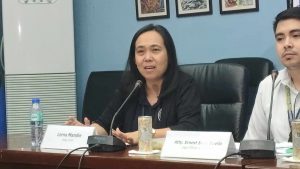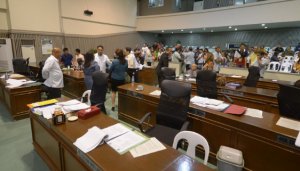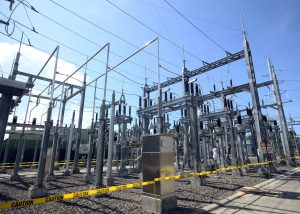 DAVAO CITY (MindaNews) — Tourists visiting Davao City will have to present negative results of their reverse transcription-polymerase chain reaction (RT-PCR) tests before they can pass through the checkpoint in Marilog District starting May 14.
DAVAO CITY (MindaNews) — Tourists visiting Davao City will have to present negative results of their reverse transcription-polymerase chain reaction (RT-PCR) tests before they can pass through the checkpoint in Marilog District starting May 14.
The checkpoint in Marilog District is located at the boundary with Bukidnon in Region 10 or Northern Mindanao region.
Mayor Sara Duterte signed Executive Order 29 on Friday, adopting the joint resolution dated May 3 of the Regional Inter-Agency Task Force for the Management of Emerging Infectious Disease (RIATF) and Regional Task Force Against COVID-19 (RIATF) on the “Uniform Guidelines to Regulate Entry and Exit in Regional Borders of Region 11.”
The issuance of the joint resolution came after the city government of Davao proposed to RIATF Davao in a letter dated April 5 to “study the restoration of the region borders controls for travel exclusion and come up with unified guide for checkpoints to screen the travelers that may be allowed entry into Davao Region.”
Section 5 of the joint resolution provides that tourists who are non-residents of Davao Region will be required to comply with a negative virus test result taken within 72 hours in addition to the requirements of resort booking confirmation and StaySafe.ph mobile application, the official contact tracing digital app of the Philippine government.
It said that the RT-PCR test results shall be submitted electronically by the tourists immediately upon receipt of results, to the management of the resort not earlier than 72 hours upon entry into the region. Resort management will immediately submit the same upon receipt to the Department of Health-Davao Operation Center for verification, and a certification will be provided once validated.
The DOH-Davao will be tasked to endorse to police authorities a list of verified RT-PCR test results within 24 hours from verification, and will provide a list of accredited laboratories and samples of RT-PCR test results for guidance and reference of personnel manning the checkpoints.
Alex Roldan, director of Department of Interior and Local Government (DILG)-Davao who is also RIATF-Davao chair, said during a virtual briefing last Wednesday that the issuance of the resolution seeks to regulate the entry of people into the region in hopes of controlling the transmission of COVID-19.
He said the provinces in the region that share boundaries with other regions must adopt the joint resolution to give it effect.
The RIATF-RTF resolution, released to provide “harmonious implementation” of the protocols at the regional borders, is applicable to inter-regional movement or movement from one region to another.
Nonresidents traveling for essential purposes will only need to show proof of appointment, medical prescription/referral, or any other documents showing proof of essential transaction.
It said movement of authorized persons outside of residence (APORs) is allowed, provided that they present identification card, or certificate of employment, or travel order or itinerary, and must pass symptom-screening at ports of entry.
APORs include heath and emergency frontline services and uniformed personnel; government officials and employees on official travel and official business; duly-authorized humanitarian assistance actors (HAAs), especially those transporting medical supplies and laboratory specimens related to COVID-19, and other relief and humanitarian assistance; persons traveling for medical or humanitarian reasons; persons going to and from the airport; anyone crossing zones for work or business permitted in the zone of destination, and going back home; and public utility vehicle operators.
The resolution also provides that movement of all types of goods and cargos shall be unhampered, but personnel of delivery vehicles must be limited up to a maximum of five persons only; personnel shall undergo usual symptom screening protocol at port of destination’s entry; and strict social distancing must be observed, which may include, if necessary, the putting up of additional safe and humane seats or space in the vehicles. (Antonio L. Colina IV / MindaNews)



